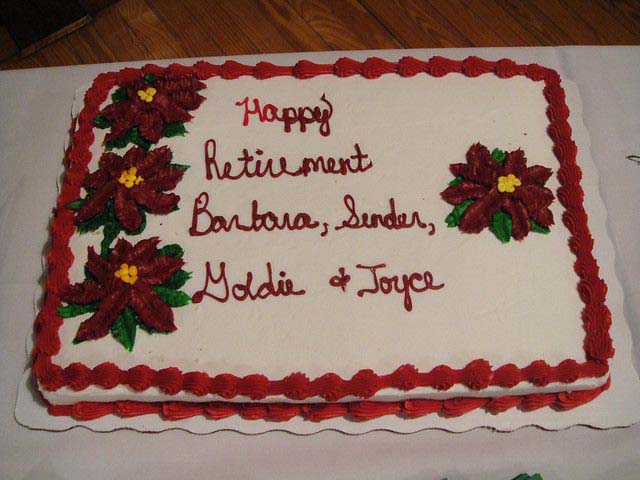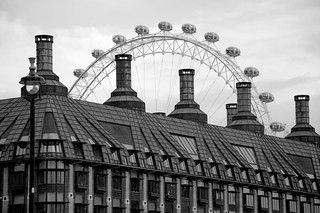Retirement and Depression: Breaking the Linkage

Can we break the all-too-common link between retirement and depression, as the retirement stage of life keeps lengthening?

Many of us know at least one person who is wrestling with depression in retirement. When that individual is a close friend or a relative or a parent, we become very aware of the challenges involved in the major life transition that we call retirement. When that person is ourselves, the issue takes on even more importance.
I want to emphasize here that, in our time, the linkage between retirement and depression can begin quite some time before retirement actually starts.
P – Retirement and Depression: What’s the Root Connection?
C.G. Jung once said something important about retirement. He said it quite a number of years ago, but it’s even more relevant today than when he first said it:
It’s good to retire — but not into nothing.
~ C.G. Jung
“Retiring into nothing” is very much related to the linkage between retirement and depression. In the sense in which Jung meant it, “nothing” here refers to a meaningless life. The person who is “going into retirement” needs to feel that they’re not entering a vacuum where all the meaning and value that they’ve found in their previous work life has been sucked out, leaving them with nothing. No one who intentionally enters retirement does so with the idea that they’re signing up for a drab, meaningless existence. Yet many experience something not far from that.
Perhaps surprisingly, this discussion of “good retirement” and the topic of our last blog post, on “signs of burnout” both involve the same thing: the need to find meaningful, substantial involvement in life.
Let’s suppose that you enjoy your job, at least to some extent, and find that it provides some sense of meaning or purpose in your life. Then you cannot expect to find a valuable retirement, unless you’re getting these same needs for involvement and meaning or purpose — perhaps “making a contribution” — in your post-retirement life. Similarly, if your work life has fallen short in providing a sense of enjoyment or meaning or contribution, it’s going to be essential to find these things on the retirement life journey.
My clinical experience in a suburban /a-midlife-transition practice suggests that finding these things in retirement is a substantial problem for many people. As a result, in too many cases, there is a connection between retirement and depression.
A – Retirement: Fantasy & Reality
As a culture, we have a lot of collective fantasies swirling around the subject of retirement.

Fantasyland?
In the post-war era, there was an understanding that people were “working toward” retirement at age 65. You were considered to have done exceptionally well if you were able to retire before that age (“Freedom 55”!). There was an emphasis on “escaping” from work. There was a sense that, when you retired, you would be entering a wonderful time that was essentially carefree, when you could do whatever you wanted to do with your time.
However, studies suggest that the likelihood that someone will suffer from clinical depression actually goes up substantially after retiring. The illusion that retirement is automatically some sort of Magical Mystery Tour has worn pretty thin. What is clear now, according to the leading experts is:
“The most successful retirees plan out their post-working lives.”
~ Prof. Ronald E. Reggio, Claremont McKenna College
Whether prior to, or during, retirement we need to reflect very carefully on our needs. This will lead us into important questions about our key values. You may be a person who puts a primary emphasis on creative forms of leisure, or a person who has a longing to create something on an on-going basis, or a person who fundamentally needs to be doing some kind of work.
How will you live out who you actually are? Failing to address this, and failing to think creatively about this stage of your life is a way of increasing the odds that depression could be your companion in retirement.
In large part that’s because work, whether we realize it or not, provides many of the ingredients that fuel happiness, including social connections, a steady routine and a sense of purpose.
Retirement and Real Life
Living our complete life journey in a way that we find valuable and meaningful is key to avoiding the combination of retirement and depression, or getting out of it if we are already in it. There is great value in thinking creatively about where we are in our life journey.
Here’s a list of six fundamental things that we can do for ourselves in or near retirement:
- 1) Staying active and in good shape, as good health is essential for good retirement.
- 2) Keep social: deepen your existing bonds and make new ones.
- 3) It can often help to keep some sort of routine or plan for the day, as structure often helps to get more out of the day.
- 4) Carefully consider doing some form of meaningful “work”, in some sense of the word. Often part-time workers often stay in a better place mentally than those who quit cold turkey.
- 5) Consider doing something that involves “giving back”, or volunteering — contributing can increase mental well-being.
- 6) Think about some form of learning or classes, as a way of exploring new things and staying mentally alert.
In addition to all of the above, retirement is one of the major life transitions that leads an individual to ask deep level questions about her or his own identity and life story and about what is ultimately meaningful in his or her life. It can be an excellent time to embark on working with a Jungian /a-midlife-transition, to help find orientation on the life journey.
